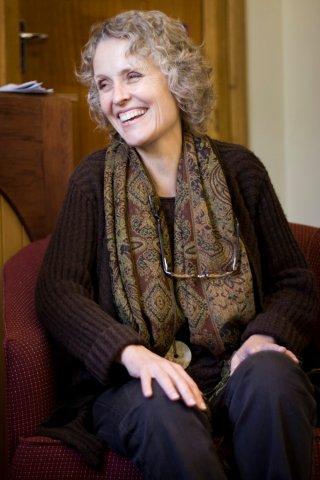
The Department of Psychology has launched a new research and postgraduate area focusing on Critical Sexual and Reproductive Health Studies. The focus area will enable postgrads and researchers to analyse how a range of taken-for-granted assumptions underpin public health interventions with respect to sexual and reproductive health.
Critical Sexual and Reproductive Health Studiesis a cross-disciplinary research focus area which is part of four Humanities focus areas funded to tune of USD800 000 by the Mellon Foundation.
The study area is led by Professor Catriona Mcleod of the Department of Psychology in conjunction with Professor Louise Vincent in the Department of Political and International Studies, as the main collaborator and research coordinator.
The focus area also looks at how the governmental technologies of representation and intervention achieve particular gendering, racialising and class-based effects, and lead to the continuation of sexual and reproductive health inequities; and how particular discourses regarding sexual and reproductive health are perpetuated or resisted in the everyday lives of men, women and their families, and between health service providers and clients.
In 2009 and 2010 Professor Macleodand a colleague produced initially a literature review of South African research and then a document, entitled Strategy framework. Sexual and reproductive health amongst adolescents: comprehensive preventive and promotion strategies, for the World Health Organisation (WHO) and the national Department of Health (DoH) which will inform the DoH’s national planning regarding adolescent sexual and reproductive health services.
Prof Macleod was also a member of the international panel of experts for the WHO’s Geneva meeting on ‘Adolescent pregnancy within the context of the Making Pregnancy Safer’ programme in 2009. In 2003 Professor Louise Vincent was contracted by the WHO to produce a report on Male Circumcision Policy, Practices and Services in the Eastern Cape Province of South Africa.
It is envisaged that there will be three new PhD students, and six new Master’s students joining Rhodes for this research focus area while there are also significant synergies between the research projects that will be engaged in by the core researchers, collaborators and students and the research and teaching being conducted both in the Psychology Department and elsewhere in the University.
Gender equality, the empowerment of women, reproductive health, maternal health and combating HIV/AIDS all feature prominently in the United Nations Development Programme’s Millennium Development Goals (MDGs). By provoking more nuanced, gender-aware and reflective approaches to sexuality education and reproductive health service provision this research will make an important contribution to South Africa’s capacity growth in these areas.
The funding applied for will allow Prof Macleod, Prof Vincent and their collaborators to apply for additional funding from such bodies as the National Research Foundation, CODESRIA, and the Medical Research Council.
Accredited outputs and the number of students graduating are expected to be substantial, and to not only to attract considerable subsidy to the University but also considerable attention to the leading role played by the University’s researchers in contribution to public health processes.
Story by Kerry Peter
Photo by Sophie Smith
